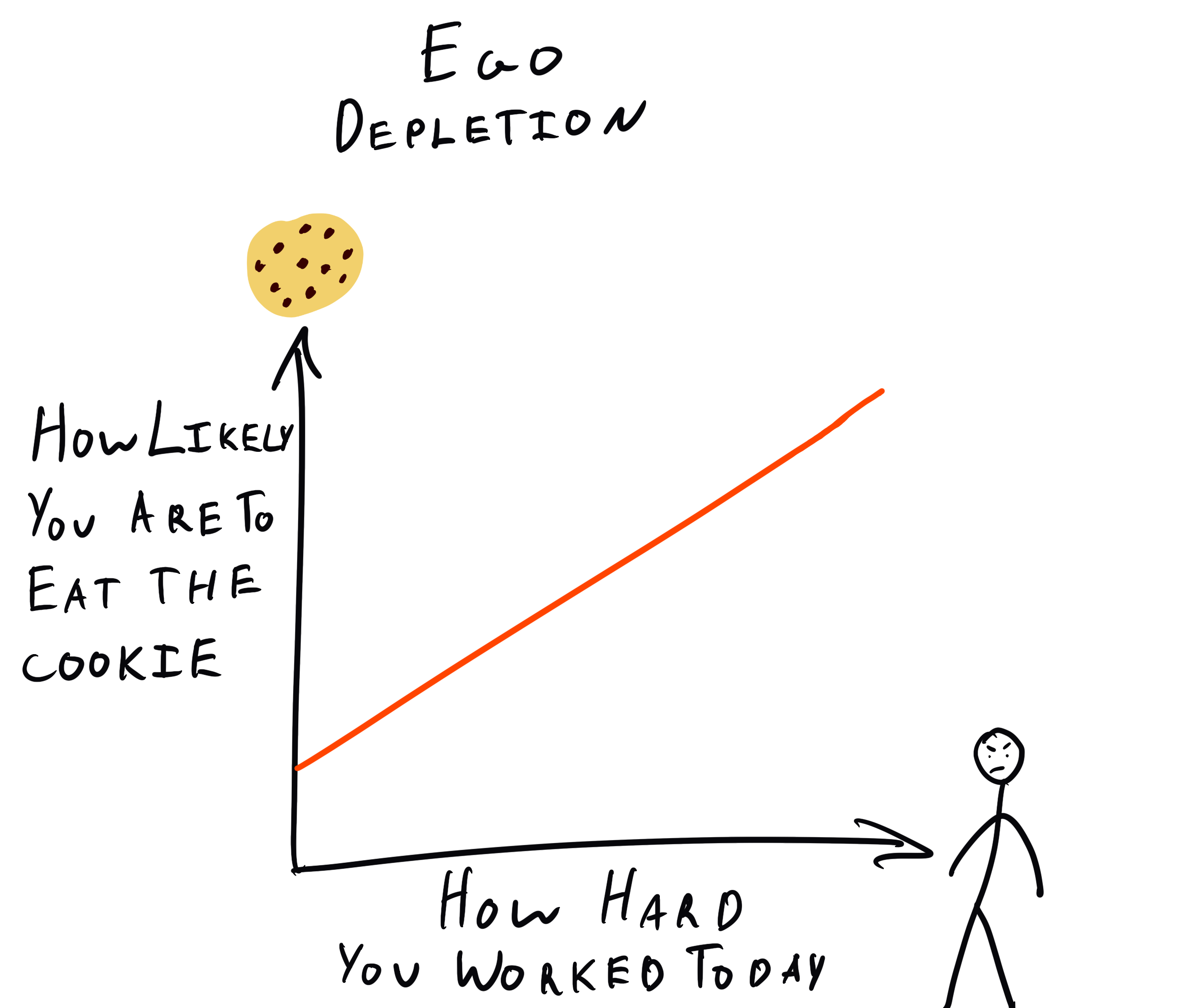Ego Depletion

The Basic Idea
There’s no denying Sigmund Freud’s significant impact on the field of psychology. While some of his better known and more controversial theories have fallen out of favor since his death in 1939, much of his work has been hugely influential to modern psychology. One Freudian concept – that of the ego – inspired the modern psychological notion of ego depletion. Ego depletion claims that there are three constantly interacting aspects to our personality. The first is the id, which encompasses our most primal urges and is driven by the search for pleasure. Next is the superego, which is concerned with morality and the sense of right and wrong taught to us by our families and society. Finally, there is the ego, which is tasked with mediating the conflicting interests of the id and the superego, so that the id can be satisfied without overstepping the moral boundaries of the superego.1
According to Freud’s theory of personality, the ego is constantly working to keep the id in check. Like any other cognitive task, the ego’s constant efforts to satisfy both the id and the superego requires mental energy, which is limited. Self-control can be thought of like a muscle; when it is well rested, it is strong, however, as it is worked, it becomes fatigued and needs to be rested again. Just like how a muscle becomes less effective as it is worked, the ego’s ability to exert self-control depletes and requires rest before it can work again.2
When we experience ego depletion, we do not have the mental energy to make effortful decisions or keep ourselves from engaging in temptations. As a result, we may make poor choices and lose productivity.
Unlike cognitive load, ego depletion is at least in part a loss of motivation. After exerting self-control in one task, you do not feel like making an effort in another, although you could do it if you really had to.
– Daniel Kahneman
About the Authors
Dan Pilat
Dan is a Co-Founder and Managing Director at The Decision Lab. He is a bestselling author of Intention - a book he wrote with Wiley on the mindful application of behavioral science in organizations. Dan has a background in organizational decision making, with a BComm in Decision & Information Systems from McGill University. He has worked on enterprise-level behavioral architecture at TD Securities and BMO Capital Markets, where he advised management on the implementation of systems processing billions of dollars per week. Driven by an appetite for the latest in technology, Dan created a course on business intelligence and lectured at McGill University, and has applied behavioral science to topics such as augmented and virtual reality.
Dr. Sekoul Krastev
Dr. Sekoul Krastev is a decision scientist and Co-Founder of The Decision Lab, one of the world's leading behavioral science consultancies. His team works with large organizations—Fortune 500 companies, governments, foundations and supernationals—to apply behavioral science and decision theory for social good. He holds a PhD in neuroscience from McGill University and is currently a visiting scholar at NYU. His work has been featured in academic journals as well as in The New York Times, Forbes, and Bloomberg. He is also the author of Intention (Wiley, 2024), a bestselling book on the science of human agency. Before founding The Decision Lab, he worked at the Boston Consulting Group and Google.




















